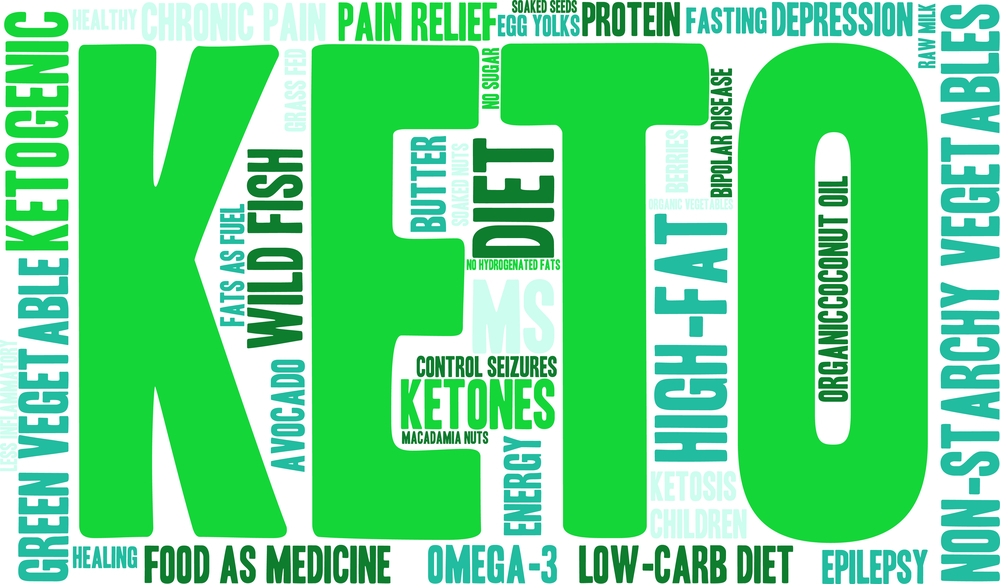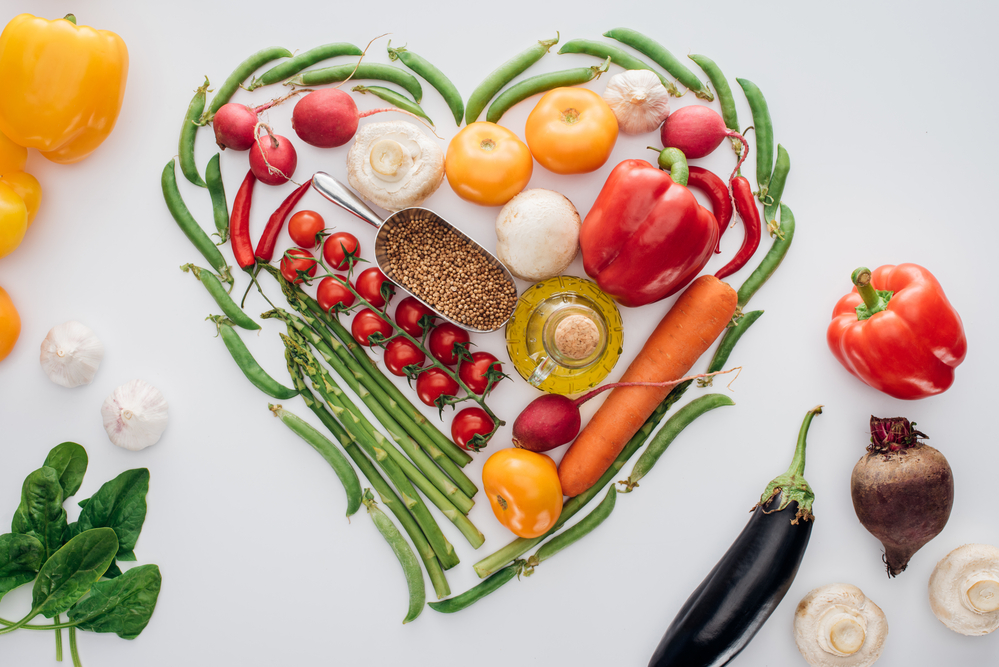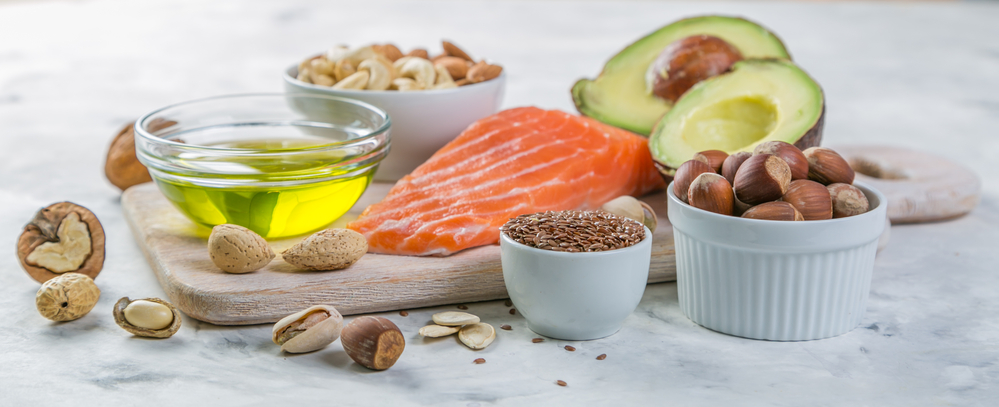Keto vs. vegan: two popular diets that have taken the world by storm. But which one is right for you? This blog post will look at keto and veganism to help you decide what works best for your lifestyle and health goals. Then, we’ll explore their benefits, drawbacks, and how they compare with each other to answer the ultimate question of keto vs. vegan – who will win out in the end?
Table of Contents:
What is Keto?
Keto is a high-fat, low-carbohydrate diet that has become increasingly popular in recent years. It involves drastically reducing carbohydrate intake and replacing it with fat. This reduction in carbs puts your body into a metabolic state called ketosis.
In ketosis, the body begins to break down stored fat for energy instead of relying on carbohydrates as its primary fuel source. The goal of the keto diet is to get the body into this state to burn fat more efficiently and lose weight quickly.
The typical macronutrient breakdown for a person following a standard ketogenic diet is 70% fats, 25% protein, and 5% carbohydrates daily. To achieve this ratio, people usually reduce their carb intake to 20–50 grams per day or less than 10% of total daily calories from carbs while increasing their consumption of healthy fats such as olive oil, avocados, nuts, and seeds.
Eating enough protein on the keto diet is also essential since it helps keep you feeling full longer and prevents muscle loss during weight loss—which can happen when you’re eating fewer carbs than usual due to reduced glycogen stores in your muscles from lower carb intake levels. Eating moderate amounts of lean proteins like chicken breast or fish, along with plenty of non-starchy vegetables, should help provide adequate nutrition without exceeding your daily carb limit too much (or at all).
Finally, one key aspect that sets the traditional ketogenic diet apart from other low-carb diets is its emphasis on consuming healthy fats rather than just cutting out carbs altogether. This means adding foods like avocado oil or coconut oil to meals instead of relying solely on animal products like butter or lard for cooking purposes only (though these are still allowed). This makes the Keto Diet an overall healthier way to eat compared to other low-carb diets, which may be higher in saturated fats.
Keto is a low-carb, high-fat diet for weight loss and other health benefits. Now let’s explore the vegan lifestyle to see how it differs from the keto diet.
What is Veganism?
Veganism is an ethical lifestyle choice that excludes all forms of animal exploitation and cruelty, whether for food, clothing, or any other purpose. It is a way of living that strives to avoid contributing to the suffering and exploitation of animals in any form.
The vegan diet consists of plant-based foods such as fruits, vegetables, grains, legumes, nuts, and seeds. Vegans do not consume animal products, including meat (including fish), dairy products (such as milk or cheese), or eggs. Some vegans also choose not to use honey or wear wool or leather items due to their association with animal cruelty.
In addition to avoiding animal products in their diets and clothing choices, vegans also seek cruelty-free alternatives for personal care items like cosmetics and cleaning supplies. They may even look for ways to support organizations working towards ending animal testing practices used by some companies in producing these items.
Vegans believe that animals should be respected just like humans; therefore, they reject the idea that animals are here solely for our benefit or consumption. They strive instead for a compassionate lifestyle that does not involve exploiting them in any way – from food production through entertainment industries such as circuses and zoos to household pets kept purely for companionship rather than breeding purposes.
By choosing a vegan lifestyle, one can help reduce their environmental footprint by reducing water usage associated with raising livestock for human consumption and cutting back on carbon emissions produced by factory farming operations worldwide. Furthermore, many people find that adopting this lifestyle leads them towards healthier eating habits overall since most processed meats contain unhealthy fats, hormones, antibiotics, additives, etc. This means more whole foods become staples within one’s diet, providing essential vitamins and minerals necessary for optimal health and wellbeing.
Veganism is an ethical lifestyle choice that seeks to reduce animal suffering and promote environmental sustainability. Moving on, let’s look at the benefits of keto as a dietary approach.
Benefits of Keto
The keto diet is a low-carb, high-fat eating plan that has been gaining popularity among vegans and vegetarians. It involves reducing carbohydrate intake to just 5% of total calories while increasing fat intake to 75%. This change in macronutrient ratios causes the body to enter a state of ketosis, where it begins burning stored fat for energy instead of carbohydrates.
Weight Loss: One of the main benefits of the keto diet is weight loss due to its ability to reduce appetite and increase fat burning. By limiting carbs, your body will be forced into using stored fats as fuel which can lead to rapid weight loss over time. Additionally, studies have shown that following a ketogenic diet may help you maintain your desired weight more effectively than other diets.
Blood Sugar Control: The keto diet can also help improve blood sugar control by reducing insulin levels and enhancing sensitivity in people with type 2 diabetes or prediabetes. This improved glucose control can help prevent long-term complications associated with diabetes, such as heart disease and stroke risk factors like high cholesterol and hypertension.
Inflammation Reduction: Following a low-carb lifestyle may also reduce inflammation throughout the body due to its anti-inflammatory effects on hormones like cortisol and leptin, which are known triggers for inflammation in some individuals. Reducing inflammation helps protect against chronic diseases like cancer, Alzheimer’s disease, arthritis, asthma, allergies, etc., all conditions linked with higher levels of systemic inflammation within the body.
Lastly, research suggests that a low-carb lifestyle could improve cholesterol levels by raising HDL (good) cholesterol while lowering LDL (bad) cholesterol levels. This improvement in lipid profile reduces cardiovascular risks such as heart attack or stroke caused by plaque buildup inside arteries due to poor dietary choices.
Keto offers many benefits, such as weight loss and improved energy levels. However, veganism also has unique advantages that should be considered when deciding on a diet plan. Let’s explore the pros and cons of veganism next.
Benefits of Veganism
It also excludes the use of animal-derived materials such as leather or fur. By choosing to go vegan, you are helping to reduce your environmental footprint by reducing greenhouse gas emissions associated with raising animals for food production. Additionally, vegan diets can benefit overall health due to their high nutrient content from plant-based foods.
Heart Health: Eating a vegan diet has been linked to improved heart health due to its low saturated fat content and high fiber intake. A study published in JAMA Internal Medicine found that those who followed a vegetarian diet had lower levels of LDL cholesterol (the wrong kind) than those who ate an omnivorous diet. This suggests that following a vegan diet may help reduce your risk of developing cardiovascular disease.
Cancer Risk: Studies have shown that vegans may have lower rates of certain types of cancer than non-vegans because they consume fewer processed meats, known carcinogens when consumed in large amounts over time. Additionally, many plant-based foods contain antioxidants that can help protect against cell damage caused by free radicals in the body – another factor believed to contribute to cancer development.
Plant-based diets are typically higher in fiber than omnivorous ones, which helps promote healthy digestion and regular bowel movements by adding bulk and moisture into stools while keeping them soft. Hence, they pass through quickly without straining or discomforting symptoms such as constipation or bloating. Fiber also helps feed friendly bacteria living within our gut microbiome; these microbes play an essential role in maintaining digestive health and supporting immune system function throughout the body.
Vegan diets tend to be higher in vitamins and minerals than other dietary patterns since most plant-based foods provide essential nutrients for energy production, such as iron, magnesium, and B vitamins – all necessary components for optimal cellular functioning throughout our bodies. Furthermore, consuming more fruits & vegetables provides us with natural sources of carbohydrates, giving us sustained energy instead of relying on sugary snacks or caffeine drinks throughout the day. This way, we can stay energized without crashing later on.
Veganism offers a variety of health benefits and is an ethical lifestyle choice. However, it’s essential to understand the potential drawbacks of keto before making any dietary changes.
Drawbacks of Keto
While the keto diet can benefit some people, it also has potential drawbacks.
One of the most significant drawbacks of the keto diet is its restrictive nature. This eating plan aims to reduce carbohydrate intake to around 5% or less and increase fat intake to about 75%. Unfortunately, this means eliminating many foods stapled in most diets, such as bread, pasta, rice, potatoes, and other grains. This can make it difficult for some people to maintain long-term due to limited food choices.
Another drawback of the keto diet is the potential side effects caused by electrolyte imbalances or dehydration from a lack of carbohydrates. These include constipation, bad breath, fatigue, nausea, headaches, and irritability, which may occur if you don’t drink enough fluids or take mineral supplements like magnesium and potassium while on a diet. It’s important to note that these symptoms usually go away once your body adjusts, but they can still be unpleasant.
In addition to physical side effects, there may also be psychological issues related to following a strict eating plan like this, such as feeling deprived or overwhelmed by all the rules involved with sticking with it long term. In addition, people who have difficulty controlling their cravings may struggle more than others when trying out this lifestyle change. Hence, they need to consider whether they have what it takes before committing fully to a ketogenic way of life.
Finally, another downside associated with following a very low-carb approach like this one involves missing out on specific vitamins and minerals found in whole grains, fruits, vegetables, legumes, etc., which are typically eliminated from one’s daily menu when switching over completely. Again, this could lead to deficiencies if not adequately monitored, so those considering going full-on Keto should ensure adequate nutrition through supplementation if necessary.
While the keto diet has some potential health benefits, it also has drawbacks that should be considered. On the other hand, veganism also has its own disadvantages, which we will explore in the next section.
Drawbacks of Veganism
While veganism has many benefits for human health and the environment, it also has drawbacks.
One of the main drawbacks to veganism is nutrient deficiency. As vegans do not consume animal products, they may miss out on essential nutrients such as iron, calcium, and vitamin B12 found in animal sources but not necessarily in plant-based foods. Therefore, to ensure their diet is nutritionally balanced, vegans should take supplements or eat fortified foods to get these essential vitamins and minerals into their diet.
Another potential drawback to veganism is food variety restriction. Since vegans cannot eat certain types of food, such as cheese or eggs, due to their animal origin, this can limit what kinds of meals they can prepare at home or order when dining out. Therefore, vegans need to plan so that they have access to a wide range of healthy plant-based options wherever they go – from grocery stores to restaurants – so they don’t become bored with their meals over time.
Social situations can also pose challenges for those who follow a vegan lifestyle since most gatherings involve dishes containing animal products like burgers or chicken wings which are off-limits for vegans unless there are special arrangements made beforehand by the host or restaurant staff member in charge of catering the event. This means extra effort needs to be taken by those following a vegan diet if they want to attend social events without feeling left out because all the food choices available aren’t suitable for them personally.
Though veganism can be a healthy lifestyle, there are some drawbacks to consider before making the switch. So now, let’s compare keto vs. vegan diets to determine which is best for you.
Comparing Keto vs. Vegan
Keto and veganism are two popular diets that have gained traction recently. While both offer potential health benefits, they differ significantly in their approach. The keto diet focuses on macronutrient ratios (high fat/low carb), while veganism eliminates animal products from one’s diet and lifestyle choices for ethical reasons rather than weight loss or health benefits per se.
The ketogenic diet is a high-fat, low-carbohydrate eating plan designed to put the body into a state of ketosis. This metabolic process burns fat instead of carbohydrates as its primary energy source. This diet has been used to treat epilepsy since the 1920s. Still, it has recently become popular among those looking to lose weight quickly or manage certain medical conditions such as diabetes or heart disease.
Veganism is an ethical philosophy and lifestyle choice which involves abstaining from all animal products, including meat, dairy, eggs, honey, and other animal byproducts such as leather goods and cosmetics tested on animals. It also includes avoiding activities that exploit animals, such as circuses or zoos. Vegans believe that all living creatures should be treated with respect regardless of species, so they strive to live without causing harm to any animals whatsoever.
When comparing these two diets side by side, there are several key differences worth noting: Keto emphasizes macronutrients like fats over carbs, whereas veganism does not involve any animal products at all; Keto can help you lose weight quickly but may require more planning due to its strict dietary restrictions; Veganism requires no specific food intake but may take longer for results depending on individual goals; Lastly, Keto is not necessarily an ethical choice whereas veganism seeks out cruelty-free alternatives whenever possible making it a much more sustainable option overall when considering long term effects on our environment and society at large.
Ultimately, both diets can provide health benefits if followed correctly. However, vegans tend to reap additional rewards due to their commitment to reducing suffering amongst animals worldwide through conscious consumer choices – something that cannot be said about the keto diet, which only focuses on macronutrient ratios rather than ethics itself.
FAQs
Which is healthier, plant-based or keto?
It is difficult to definitively answer which diet is healthier, as both have pros and cons. Plant-based diets are typically high in fiber, vitamins, minerals, and antioxidants while low in saturated fat and cholesterol. However, they may lack certain nutrients, such as omega-3 fatty acids found in animal products. On the other hand, keto diets focus on eating primarily fats with moderate amounts of protein and very few carbohydrates. This diet can help people lose weight quickly but may not provide all the essential nutrients for optimal health. Ultimately it comes down to individual needs and preferences when deciding which dietary approach works best for you.
What is the difference between vegan and keto?
Veganism is a lifestyle choice that eliminates all animal products, including meat, dairy, eggs, and honey. Instead, it focuses on plant-based foods such as fruits, vegetables, legumes, and grains. A vegan diet can be high in fiber and low in saturated fat.
Keto is a high-fat, low-carbohydrate diet that restricts carbohydrates to 20–50 grams per day while allowing for total protein and fat. Keto diets are designed to put the body into a state of ketosis, where it burns stored fat instead of glucose for energy. This diet does not eliminate any food groups but somewhat limits carbohydrate intake while emphasizing healthy fats like avocado or olive oil.
Can you do keto if you are a vegan?
No, it is impossible to do the keto diet if you are a vegan. The ketogenic diet requires high amounts of animal proteins and fats, which are incompatible with a vegan lifestyle. Additionally, most plant-based foods contain carbohydrates that need to be limited on the keto diet. Therefore, vegans cannot follow the standard version of this eating plan without compromising their values or health.
Is vegan better than low carb?
It is difficult to answer whether veganism is better than low-carb diets definitively. Both approaches have benefits and drawbacks, depending on an individual’s lifestyle and dietary needs. For example, veganism eliminates all animal products from one’s diet, benefiting those looking to reduce their environmental impact or improve their overall health. On the other hand, low-carb diets reduce carbohydrate intake while increasing protein and fat consumption, which may help some individuals lose weight or manage certain medical conditions such as diabetes. Ultimately, it is up to each individual to decide what works best for them based on their unique circumstances.
Conclusion
In conclusion, keto and vegan diets have their benefits and drawbacks. Keto focuses on high-fat, low-carb foods, while veganism emphasizes plant-based eating. Ultimately, the decision of which diet to follow comes down to personal preference and lifestyle. It is essential to research each option thoroughly before deciding, as many factors are involved in choosing the proper diet for you. While both keto and vegan can be healthy choices depending on individual needs, it’s essential to ensure you’re getting all the necessary nutrients your body needs regardless of your diet.
We must work together to make the switch between keto and vegan lifestyles easier for everyone. Understanding both diets can create a more sustainable future for ourselves and our planet. Through education, guidance, and support, we can help people transition into healthier eating habits that are better for their health and the environment. So let’s join forces today to bring about positive change in nourishing ourselves!




